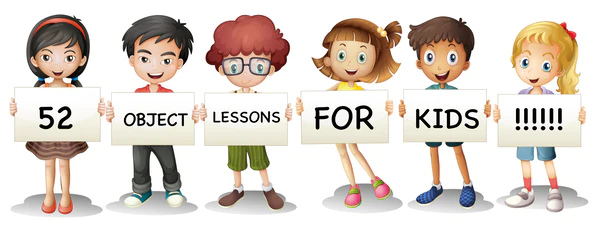Key Takeaways
- Interactive object lessons can help children grasp complex spiritual concepts.
- Engaging teaching methods support cognitive development and memory retention.
- Adapting lessons for different learning styles ensures inclusivity.
- Digital tools and resources help modernize kids’ ministry.
- Evaluating the efficacy of teaching methods is essential for continuous improvement.
- Current trends hint at a more integrated and technology-driven approach to spiritual education.
Introduction
In children’s ministry, it’s an ever-present challenge to capture the imagination and hold the attention of young minds. Methods that favor interaction and engagement over passive learning can be transformative. Object lessons, particularly those that draw from biblical narratives, offer a means to connect with children on a level they understand. Through tangible experiences, spiritual lessons become more than words; they become memorable and relatable truths. This is why many educators turn to resources like object lessons for kids, which provide a wealth of ideas for bringing scripture to life in an impactful way.
The Fundamentals of Object Lessons
Object lessons for kids bridge concrete objects and abstract classes, using physical items as metaphors to represent larger truths. This teaching method is not new; it’s been used throughout history to make complex ideas accessible. Object lessons serve as hands-on demonstrations for children whose experiences and understandings of the world are still forming. The object becomes a focal point for discovery, stimulating curiosity and facilitating a deeper understanding of scriptural themes.
Psychological Benefits of Object Lessons for Children
When children are allowed to engage all of their senses while learning, it can profoundly impact their development. Students can better understand the material by seeing, touching, and interacting with an object. This multi-sensory approach to learning can help improve memory retention, promote critical thinking, and ultimately lead to a more comprehensive grasp of the subject matter.
Education experts have long recognized the importance of sensory learning, which can accommodate a variety of learning styles and meet the unique needs of individual students. By tapping into this educational framework, teachers can create object lessons that are both engaging and effective. Object lessons are instrumental in conveying biblical teachings, allowing students to interact with the material more hands-only, deepening their understanding and appreciation of the lessons.
Integrating Object Lessons in Kids Ministry
Object lessons can be seamlessly woven into the fabric of kids’ ministry, aligning with lesson plans and curricular goals. Educators can create an immersive learning environment by utilizing storytelling with physical items, from household objects to natural elements, to represent biblical concepts. Each object lesson should be carefully crafted to cater to the age group being taught, taking into account their developmental stage. Questions and interactions can also be incorporated to foster critical thinking and personal connection with the lesson material.
Impact on Children’s Spiritual Journey
The accurate measure of any educational approach within the realm of ministry is its long-term impact on children’s spiritual journey. When object lessons are used effectively, they can instill a lasting impression on young hearts and minds. Children gain an ability to see their everyday lives through the lens of their faith, finding relevance and meaning in the scriptural teachings they’ve explored. It goes beyond the classroom or church walls, rooting their spiritual growth in personal insight and experience.
Innovative Object Lessons from Real-Life Examples
Across the globe, teachers and educators are sharing their insights and successes with object lessons in various forums and collaborative spaces. These stories inspire fellow educators to think outside traditional pedagogical boxes, providing new and innovative ways to share scriptural truths with children. Creative practices can transform lessons from mere concepts into interactive adventures that engage children’s imaginations and spirits.
Overcoming Challenges in Kids Ministry Education
Today’s classrooms and education settings have challenges, especially when managing diversity in learning styles and attention spans. Adding to this is the challenge of adapting education methodologies to digital and remote learning formats, which have become more prevalent. Platform tools that integrate technological advances can be particularly effective in capturing children’s attention and, in some cases, even enhancing the learning experience by bringing in elements of interactivity and multimedia that resonate with today’s tech-savvy generation.
Resources and Tools for Crafting Object Lessons
Various resources and tools are available to support educators looking to leverage object lessons in their ministry. From creative aids to lesson plans and interactive digital apps, the possibilities are vast. Educators must identify resources that align with their teaching objectives and the needs of their students, allowing for customization and flexibility in their approach.
Measuring the Success of Object Lessons in Ministry
Successful teaching methods in ministry are marked by their resonant ability to convey spiritual truths. Feedback mechanisms can be established to measure this, ranging from simple discussions to more structured assessment tools. For object lessons, success can often be observed through children’s enthusiasm and engagement levels during the lesson and in their ability to recall and relate to the teachings later.
Future Trends in Kids Ministry and Education
The world of education, including that of children’s ministry, is changing quickly due to technological advancements. Online platforms are becoming more important, indicating a future where a mix of online and offline learning experiences becomes the norm. These trends, as discussed in an article, provide exciting opportunities for ministry educators to create engaging and impactful learning experiences by combining traditional methods with modern technology.



